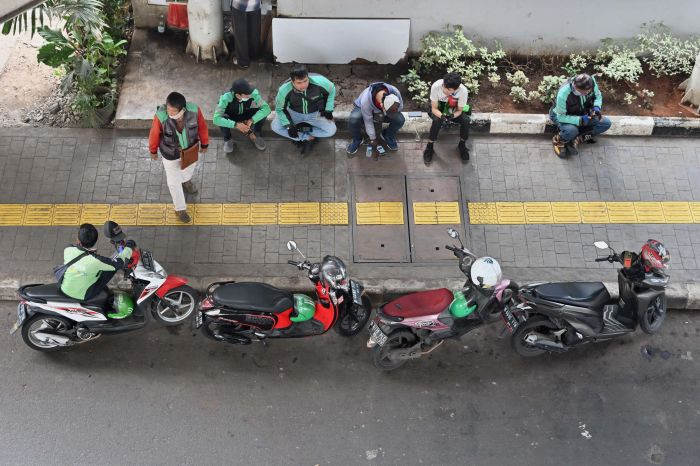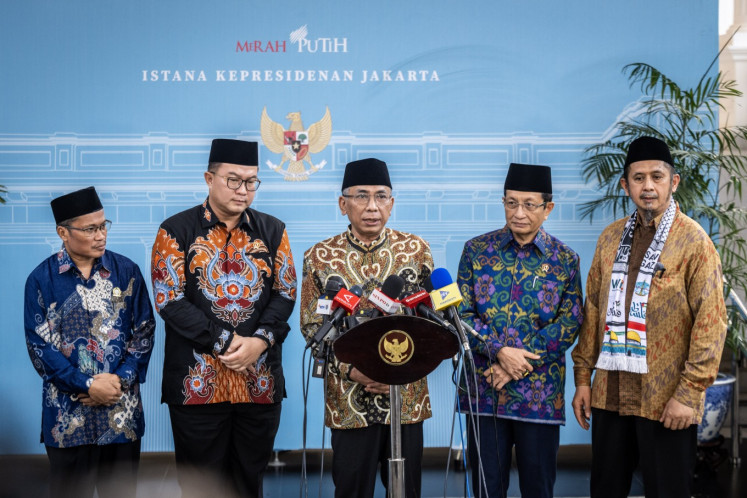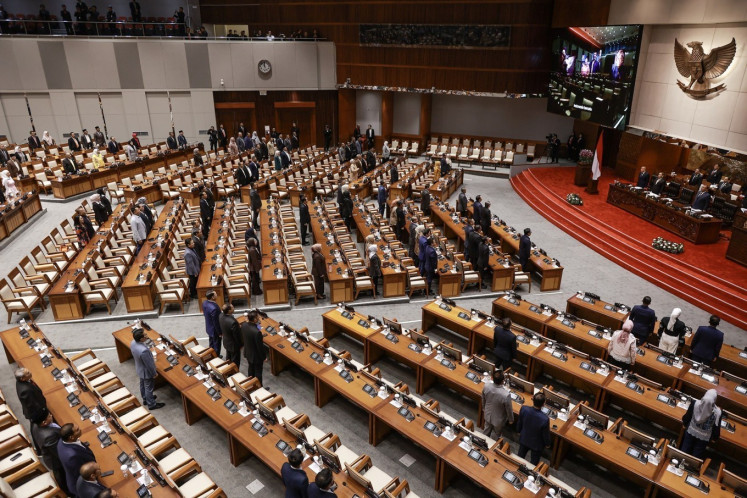Popular Reads
Top Results
Can't find what you're looking for?
View all search resultsPopular Reads
Top Results
Can't find what you're looking for?
View all search resultsSaving Indonesians abroad?
The Foreign Ministry says there are 157 Indonesians in foreign prisons whose legal processes remain ongoing as they face the death penalty; 111 for drug trafficking and 46 for murder.
Change text size
Gift Premium Articles
to Anyone
W
hile the state has a constitutional duty to look after the wellbeing of all Indonesians wherever they live, we may want to question whether this extends to citizens who are incarcerated abroad.
This question is important as the government is contemplating arranging bilateral transfer-of-prisoner mechanisms with several other countries, essentially to allow these people to serve their prison terms here at home.
President Prabowo Subianto initiated the discourse on the prisoners’ transfers when he decided to allow convicted foreign drug traffickers to go home.
One of them, a Philippine woman, was on death row and had previously had her clemency pleas turned down by Prabowo’s predecessor, Joko “Jokowi” Widodo. Her life has been spared since returning home as the Philippines has abolished capital punishment. Five Australians who received long jail terms have also been sent home.
Early in his presidency, Prabowo used his prerogative in agreeing to the transfers, responding to personal requests from his Philippines and Australian counterparts in meetings on the sidelines of summits abroad. His cabinet later came up with the legal explanation that the transfers were made under the transfer-of-prisoners mechanism.
This triggered the discussion of whether our government should try to bring home Indonesians currently serving time in foreign prisons. The short answer is yes, but only selectively.
There are thousands of Indonesians incarcerated in foreign countries and the number is rising with the growing number of citizens traveling abroad, whether for work or pleasure. Some would inevitably be caught in some criminal activities and jailed. But trying to bring them all home would overwhelm the government. Given the poor condition of overcrowded Indonesian jails, many of them are probably better off where they are to serve out their terms.
Bringing home incarcerated Indonesians under the prisoners’ transfer mechanism must be done on a case-by-case basis. Unfortunately, the two cases that have surfaced in the current discourse, Hambali and Reynhard Sinaga, are not good examples. If anything, they should be the last on the list if we want to bring them home.
Hambali is a fugitive who fled the country after the 2002 Bali bombing. He was arrested in Thailand, whose government handed him to the United States government, which then sent him to the Guantanamo prison designated for terrorist suspects. Hambali was never tried in the US court, but if he had been tried in an Indonesian court, he would most likely have been sentenced to death, like the three men convicted for the Bali bombing.
Reynhard’s case came up recently after reports that he had been the target of violent attacks in a United Kingdom jail. He is serving a life term after the court found him guilty of 159 sex offenses, including raping 136 young men between 2015 and 2017. It is not uncommon for convicted rapists to meet violence inside jails, a kind of karma in most countries. Bringing Reinhard home would not necessarily improve his safety.
Coordinating Law, Human Rights, Immigration and Correctional Services Minister Yusril Ihza Mahendra says his office is still counting how many Indonesians are lingering in foreign prisons, but the bulk of them are likely to be in Malaysia and Saudi Arabia where there are sizable Indonesian migrant workers, documented or otherwise.
The Foreign Ministry says there are 157 Indonesians whose legal processes remain ongoing as they face the death penalty; 111 for drug trafficking and 46 for murder. Indonesian embassies work to make sure that they get legal representation to avoid capital punishment.
If Indonesians who are on death row are the target for prison transfer arrangements, it is only worth the trouble if we abolish capital punishment first. Because the term of the agreement usually stipulates that the home country would have to make sure that the prisoners serve out the punishment meted out by the court in the foreign country.
However, there is a strong case for bringing home Indonesians whom we feel have not been given the proper due process of law, or cases of miscarriages of justice, or cases where the justice and court systems simply lack the credibility to be able to deliver justice.
Now, those are worth saving, and the state should make all efforts to bring them home.











